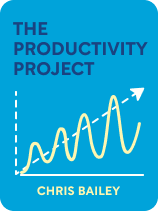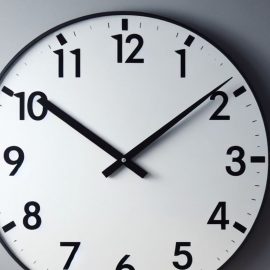

This article is an excerpt from the Shortform book guide to "The Productivity Project" by Chris Bailey. Shortform has the world's best summaries and analyses of books you should be reading.
Like this article? Sign up for a free trial here.
What exactly is productivity? What are some things you can do to become more meaningfully productive?
According to productivity expert Chris Bailey, productivity isn’t just about trying to do more for the sake of doing more. Rather, productivity is the ability to identify and prioritize what matters most.
In this article, we’ll explain Bailey’s definition of productivity and how it challenges a common misunderstanding about what it means to be productive.
What Is Productivity?
When most people think about being productive, they often think about being busy or getting a lot done. Chris Bailey’s productivity definition tweaks this, arguing that productivity isn’t about doing a lot, but about doing what matters. For example, if you spent the day responding to a flood of emails, you might feel busy, but it’s unlikely that you made significant progress on anything important.
(Shortform note: Many economists define productivity as a simple ratio—the amount of output (goods and services) relative to the amount of input (effort and resources). For example, economist Paul Krugman notes that productivity is often defined as the amount of output produced per hour of work. However, business consultants like Peter Drucker and Stephen Covey more closely align with Bailey’s contention that not all outputs are created equal, arguing that productivity isn’t just about doing more, but about doing what has the most impact.)
The ultimate goal of productivity, Bailey explains, is to accomplish meaningful work in less time. However, he doesn’t promote productivity just for the sake of productivity. He argues that you shouldn’t try to be more productive so that you can work more. Instead, he advocates harnessing productivity so you can more effectively reach your goals and gain back valuable free time to pursue what’s most meaningful to you.
But before you start the process of improving your productivity, Chris Bailey recommends getting clear on why you want to be more productive.
Get Clear on Your Why
Bailey argues that in order to successfully become more productive, you must first have a compelling reason. For example, do you want to become more productive so you can feel calmer at work, or so you can spend more time with your family, or so you can finally start writing that romance novel you’ve always talked about? Your why will be an important touch point to come back to as you work on increasing your productivity, and it will help keep you motivated on days when being productive feels especially hard.
(Shortform note: In Find Your Why, Simon Sinek argues that knowing your why is at the core of everything you do, not just your productivity. According to Sinek, every person has a single core belief (their “why”) that inspires them to do the work they choose to do and be the kind of person they want to be. However, contrary to Sinek’s claims, research has shown that your motivations and sense of purpose don’t stay constant but evolve over your lifetime, so it’s always worth taking an opportunity to reflect on your why and ask yourself whether it still resonates with you.)
To find your why, Bailey recommends writing down your core values and then reflecting on how your values connect to your big-picture goals. How will being more productive help you accomplish these goals? For example, if you value creativity, being more productive will free up time for that garden design project you’ve dreamed of starting.
(Shortform note: In The 7 Habits of Highly Effective People, Stephen Covey also advocates getting clear on your core values and big-picture goals when working toward self-improvement. He recommends creating a personal mission statement that articulates the life you want to lead, the character traits you want to embody, and the impact you want to have on the people around you. He argues that this mission statement will help ensure that your daily actions are in line with what’s most important to you.)

———End of Preview———
Like what you just read? Read the rest of the world's best book summary and analysis of Chris Bailey's "The Productivity Project" at Shortform.
Here's what you'll find in our full The Productivity Project summary:
- A how-to book for anyone who wants to become more productive
- Why productivity isn't about doing a lot, but doing what matters
- How to hone your focus and monotask better






